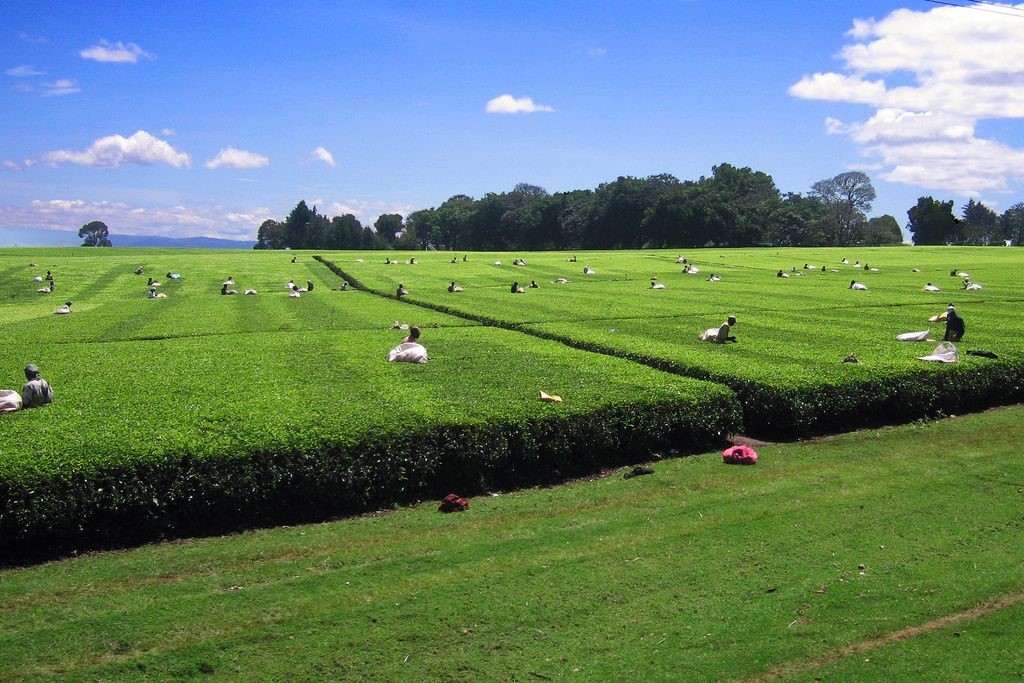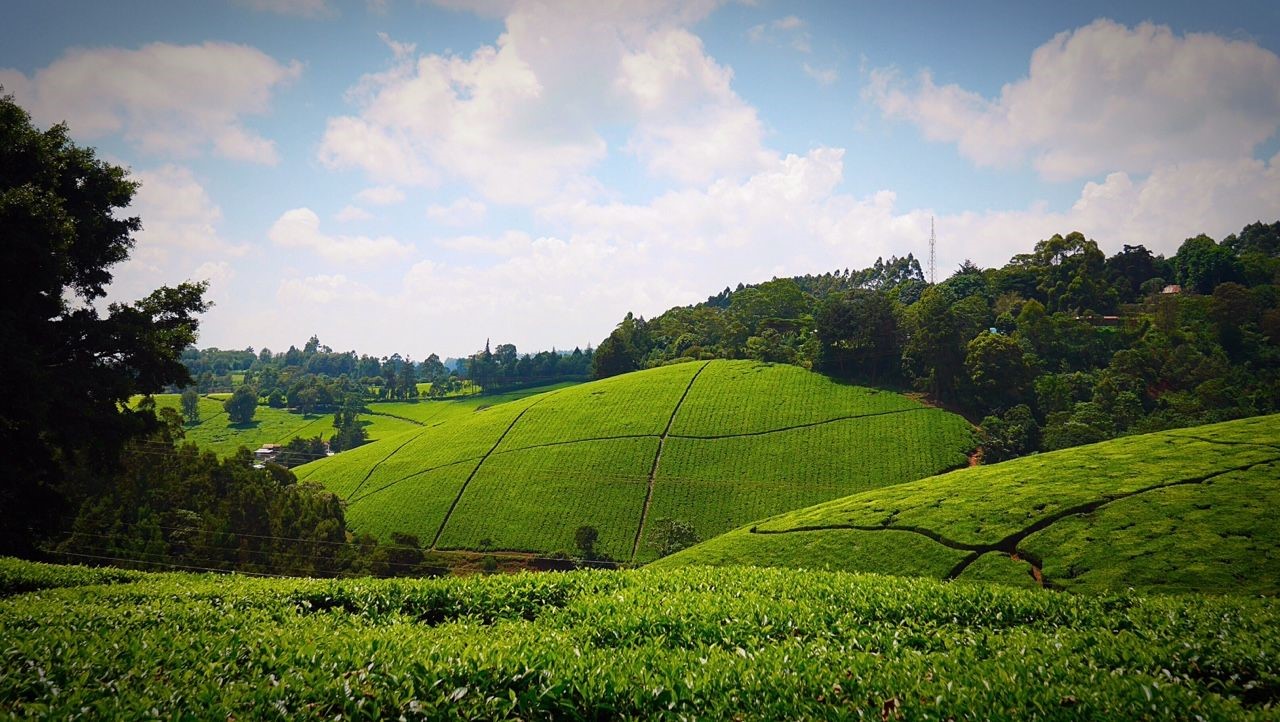Ethnographies of the global value chain of certified tea (SUSTEIN)
By Hannah Elliott, Martin Skrydstrup and Matthew Archer.
Why SUSTEIN?
Currently, the world’s tea industry is on a race with time to source tea sustainably before 2020. But what is “sustainable tea” and how do we know if tea is sustainable or not? This project entitled SUSTEIN (SUStainable TEa INfrastructure) will focus on this question by way of looking at localized translations of transnational sustainability standards in Kenya, United Arab Emirates and corporate headquarters in Europe. We aim to advance our understanding of the global value chain of certified tea.
3 Research lines
The theoretical objective is to venture beyond the notion of global value chain by reinterpreting sustainable supply chain management through the concept of infrastructure, a notion anthropologists and other social scientists have deployed in recent years to emphasize the political and temporal aspects of networks such as transnational supply chains. We hope that this concept will allow us to better comprehend how sustainable certification schemes manifest in global value chains.
SUSTEIN consists of three sub projects, which each address a core question posed by the project:
- How does certification shape agrarian production in the form of cultivation and factory processing, and vice versa? Who benefits from which sustainability standards? (Line A)
- How does certification influence the valuation of tea, assessed in terms of taste, grade and price? How is the value of certification performed and capitalized? (Line B)
- How do corporate professionals and independent auditors distinguish between “sustainable/unsustainable”? What lines of evidence are recognized? (Line C)
Each of these questions will be answered by the corresponding research line:

Research line A
explores agrarian questions, enquiring into the ways contemporary drives towards sustainability shape and are shaped by modes of tea production in Kenya. The research focuses on the institution of the tea plantation and its associated factories and outgrower farms, all key components of the infrastructure of sustainable tea. The tea plantation has been described as having a “dual character” (Besky 2008: 1); it has its roots in British colonialism while being contemporarily positioned in international markets for certified sustainable commodities. This research line enquires into what ‘sustainability’ comes to mean and materialise within this apparently contradictory setting. How do contemporary measures seeking to ensure sustainable tea production, such as certified standards, affect the way tea is produced in the context of the plantation? And to what extent do longer-standing modes of plantation production endure through the present, in turn shaping contemporary sustainability ideologies and practices? The research line addresses these questions through ethnographic inquiry. The researcher will spend time with the people working on tea plantations and in factories certified by different certification bodies and on the farms of outgrowers contracted to supply the companies owning plantations with supplementary sustainable tea. Through interviews and participant observation, the ethnographer will enquire into the social, political and ethical worlds surrounding sustainable tea production in contemporary Kenya.
Research line B
will follow through on the plantation and factory sites to the auction sites in Mombasa and Dubai. Ethnographic fieldwork will be conducted in the Jebel Ali Free Zone in Dubai with no tax regulations, no strict labor laws nor import/export duties, making it the perfect infrastructural hub to blend and pack tea according to corporate logic. Likely as an outcome of this, the Dubai Tea Trading Centre has since its establishment in 2005 risen to re-export 60% of the world’s tea production. These volumes are predominantly traded on virtual platforms.
In contrast, the Mombasa Tea Auction holds two weekly auctions under the auspices of the East African Tea Trade Association (EATTA), which conforms to national regulations (Tea Act of Kenya & Tea Board of Kenya). Recently, this auction site voted “against the mouse and for the hammer,” maintaining the tradition of the Dutch auction style vs. virtual trading. The ethnography for this research line will move between these two sites, following tea blenders who purchase in Mombasa vs. Dubai and investigating tea expertise and technologies as it pertains to the valuation of certified tea.
Research line C
builds on these ethnographies of production and exchange to try and understand the relationship between corporations and standards/certification regimes. There is a tension between these groups of actors whereby standards organizations such as the Rainforest Alliance and Fairtrade International need to appear independent in order for their certifications to remain credible while at the same time remaining sensitive to the financial obligations of for-profit corporations in order to promote “buy-in.”
This research line will draw on interviews with people working in these organizations and participant observation at sites where they interact, including industry conferences and trade fairs. These are the sites where sustainability is negotiated as both a concept and as a set of practices. With that in mind, interview questions will focus on, among other things, the extent to which specific agricultural and trading practices are integrated into broader definitions of sustainability and their manifestation in different certification regimes, the challenges of maintaining a critical distance between certifiers and corporations, and the way standards govern markets and, crucially, vice versa.
The grant
SUSTEIN is made possible by the Sapere Aude Starting Grant (meaning “dare to know”), awarded by the Danish Council for Independent Research (DFF). The Sapere Aude program “is aimed at younger, very talented researchers, who at the time of the application deadline and within the last eight years have obtained their PhD”. The Sapere Aude program targets “top researchers who intend to gather a group of researchers, in order to carry out a research project at a high, international level.”
Reference
Besky, S. (2008) ‘Can a plantation be fair? Paradoxes and possibilities in Fair Trade Darjeeling tea certification’. Anthropology of Work, XXIX: 1, pp. 1-9.
Hannah Elliott is a post-doc in the Department of Management, Society, and Communication at Copenhagen Business School, having recently finished her PhD at the University of Copenhagen. She is responsible for research line A.
Martin Skrydstrup is an associate professor in the Department of Management, Society, and Communication at Copenhagen Business School and is the principal investigator of SUSTEIN. He is also responsible for research line B.
Matthew Archer is an assistant professor in the Department of Management, Society, and Communication at Copenhagen Business School and is responsible for research line C. He recently completed his PhD in environmental studies at Yale University and is interested in corporate sustainability and sustainable finance.
Closing remarks
In a year we hope to update BOS readers about how far we are with answering our research questions. In the meantime, we invite you to swing by our offices at Dalgas Have for a cup of tea.
The SUSTEIN project runs from 1 July 2018 to 30 June 2020.
For further information about the project, please contact the principal investigator, Martin Skrydstrup, at msk.msc@cbs.dk.
